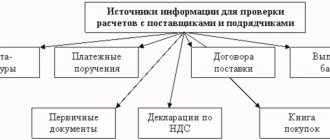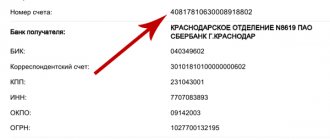Yes but not all. Moreover, only interest received from deposits of individuals that exceed 1 million rubles will be taxed.
The project was proposed by the president in March to help the victims. It states that if the amount of interest on deposits over a million rubles is greater than the amount of interest at the key rate of the Central Bank, then a tax of 13% will be charged. That is, if the law were introduced now, when the key rate of the Central Bank is 4.25%, then personal income tax would be charged on the amount of profit over 40 thousand rubles.
Note: A similar tax is deducted on investments in debt securities. However, it will not be the deposit amount that will be taxed, but only the interest received from it.
Regarding savings accounts
Many citizens do not have deposits in banks, but savings accounts - current accounts that charge interest on the balance. To formalize them, they use an agreement on opening a bank account, not a deposit. But most likely, when determining the total amount, ALL balances on the client’s deposits and accounts, on which interest will be accrued, will be assessed.
Inaccuracies in the project
The situation is not yet completely clear and innovations have not been thought through. D. Peskov claims that the tax is withdrawn only if the entire amount (1 million) is kept in one account. And if it is disbanded for various deposits, then there is no need to pay tax.
However, the head of Sberbank, G. Gref, claims that the total amount of deposits of an individual in all banks is subject to taxation - they will be summed up, and if in total they exceed 1 million rubles, then they are subject to taxation. However, a mechanism that will allow tracking the accounts of a specific depositor in several financial institutions has not yet been developed (bank secrecy does not allow financial institutions to provide information about clients’ personal data).
Undoubtedly, the taxation mechanism will still be worked out, and the situation will later be clarified or clarified.
The changes have already been adopted by the State Duma, but it is not yet entirely clear how all this will work in practice. Perhaps, in the process of implementing the measures proposed by the president, a number of circumstances will be taken into account. Most likely, the deposits will be summed up, and income from balances in all accounts will be added to the tax base - savings accounts that are not formally deposits will also be taxed. Comment Expert's answer
What are the benefits of opening an account with interest accrued on the balance?
Each individual entrepreneur or legal entity opens a current account, with which you can make payments and transactions: pay contractors, accept payments from customers, make transfers. It simplifies the movement of funds and reduces their accounting to minimal actions. In addition to standard services, some banks offer an additional option: charging interest on the account balance.
This allows you not only to hold funds, but also to receive additional profit from them.
You shouldn’t expect much income from them, but you will definitely be able to cover inflation. Certain interest is accrued on the current account, which the entrepreneur uses at his own discretion: for payments, transfers or withdrawals.
The difference from a deposit opened in a bank is that the funds can be used at any time.
Typically, a bank deposit agreement implies a complex procedure for early withdrawal or does not provide such an opportunity at all. Opening an account with interest on the balance allows you to keep the liquid part at hand and use it at any time, but still make money on it.
In addition, accruals on the balance have other advantages for the owner:
- The connection procedure is kept to a minimum. Typically, interest is calculated automatically, and the necessary clauses are specified in the agreement for opening a current account. In some cases, there may or may not be an accrual depending on the selected tariff.
- Inflation compensation and liquidity. If you may need money at any time, but you do not have a clear savings period, such an investment will allow you to receive interest that covers inflation and use it at the right time. The rate is lower than what the deposit offers, but liquidity is maintained.
- Self-control. The ability to earn interest on your account balance allows you to form the habit of putting money aside in reserve. This is especially important for new entrepreneurs.
- The opportunity to receive additional income on accounts opened in both rubles and foreign currency.
What determines the interest on the current account balance?
Interest accrued on the balance on the current account can be either a fixed or variable amount, depending on the volume of funds in the account or the internal policy of the bank. Typically, the higher the amount remaining in the checking account at a given time, the higher the interest rate. It may also depend on the chosen tariff for banking services - the higher the cost of the service package, the higher the calculated percentage.
We recommend reading: Rating of banks for small businesses with profitable cash settlement services for individual entrepreneurs and LLCs.
How is interest calculated on the cash balance on a bank account?
Every entrepreneur plans his income and expenses. If the business is stable, by the end of the month a certain balance of funds accumulates in the current account, on which you can receive income in the form of interest. What amount will be kept in the account monthly and what interest will be accrued on it - all this is stipulated in the additional agreement to the banking service agreement.
For legal entities, the bank can offer several options for calculating interest on the balance of funds placed on the current account:
- A specific amount is reserved, for example, 800 thousand rubles. Interest is calculated based on the results of the month, quarter, six months, year - it depends on the period for which the additional agreement was concluded. If on some day the account balance is greater, say 900 thousand rubles, interest is accrued only on the reserve amount - 800 thousand. If the account has less than this amount on one of the settlement days, interest will not be accrued on it.
- The threshold account balance is agreed upon either at the beginning or at the end of the working day, for example, 300 thousand rubles. It must be irreducible during the term of the agreement. Interest will be accrued if this value is exceeded - once a month, quarter, etc. If the conditions are violated - on one day the account balance is less than 300 thousand - the bank will not accrue interest for that day.
- There must be a minimum amount on the account at the end or beginning of the next day, for example, 200 thousand rubles. Interest will be accrued daily and only if the amount in the account is greater than the established minimum value. The agreement can be concluded for a month, quarter, six months, or a year.
Income calculation occurs automatically, on the last day of the agreement or on the next working day.
Let's look at the first option as an example:
- The reserved amount is 800,000.
- The annual rate is 6%.
- The agreement was concluded for the period from 01.03 to 31.05 (92 days).
We calculate the income - 800,000 * 0.06 / 365 * 92 = 12098.63 - the bank will credit this amount to your account on May 31.
If the agreement is terminated early, then the last period, which is the month of termination, is excluded from the calculations, and no interest will be accrued for it. For example, the agreement is valid from March 1 to May 31, it is terminated on May 22, and the period from March 1 to April 30 will be taken into account when calculating income.
How do banks calculate interest?
The bank can choose different charging schemes. There are three main calculation options:
- Interest accrued on the minimum balance. The bank accrues income only on the amount that has been in the account for the entire month or other billing period. For example, on the 1st a million was due, and on the 5th another million. During the remaining days until the end of the month, the amount was not withdrawn. Interest will be accrued only on 1 million, since this is the amount that has been lying around for a month.
- Accrual on the minimum balance. The bank enters into an agreement with the client, under the terms of which it charges interest if the client holds the required amount in the account for the agreed period. For example, when concluding a contract for 1 million for 3 months, the client must keep at least 1 million for the entire period in order to receive additional income.
- Daily accrual. The simplest and most understandable method for entrepreneurs, but the interest rate is usually lower. The bank charges interest provided that the account balance is not less than the agreed amount. For example, on the 1st there was 1 million - and the bank accrues income, but on the 10th - only 200 thousand, then there is no interest.
Interest is a fixed or variable rate, which depends on the bank’s program.
Typically, the higher the balance, the higher the income. It also depends on the chosen RKO tariff.
Offers from the bank
- Tinkoff. Account maintenance – 490-4900 rubles. From 0.5 to 4% per annum on the balance, depending on the chosen tariff.
- Raiffeisenbank bank. Maintenance – 0-6900 rub. The balance is charged 2-5% per annum, but for an amount not exceeding 100 thousand rubles. depending on the tariff.
- Dot. Monthly maintenance – 700 rub. 5% per annum if the minimum balance is at least 500 thousand rubles. 3% - for an amount of more than 200 thousand rubles.
- Sberbank – interest is not charged on the balance.
- Promsvyazbank - interest is not charged.
- Sovcombank – not charged.
Reflection of deposit interest in the VAT return
Formation of a VAT return is necessary for all taxpayers who are payers of this tax in accordance with current legislation.
The VAT declaration is very voluminous and consists of 26 sheets and is filled out in sections.
Let's look at what to fill out in each section in table form:
| Section name | What is reflected in the section |
| Section No. 1 | The amount of taxes that must be paid to the budget is reflected. |
| Section No. 2 | The amount of taxes and fees is reflected by the taxpayer who acts as a tax agent |
| Section No. 3 | sales amounts subject to taxation; |
| Section No. 4 | To be filled in if VAT rate zeros are used, and in this section it is necessary to justify the use of this rate |
| Section No. 5 | How are tax deduction amounts calculated when selling goods and services? |
| Section No. 6 | If a zero VAT rate is used, then this section does not confirm it |
| Section No. 7 | List of transactions that are not subject to VAT at a specific enterprise |
| Section No. 8 | Information from the purchase book is reflected, specifically for those transactions that relate to this declaration |
| Section No. 9 | Information from the sales book is reflected, specifically for those transactions that relate to this declaration |
| Section No. 10 | List of information from the special invoice journal |
| Section No. 11 | Information from the invoice journal is reflected in relation to certain actions that are carried out in relation to other persons |
| Section No. 12 | availability of invoices with allocated VAT presented to counterparties |
Accrued interest on the deposit is reflected in section No. 7 of the VAT Return.
All data is filled in from left to right. If empty columns remain during filling, a dash should be placed in them. To confirm the correctness of filling out the section, the head of the enterprise puts his signature and date in the indicated place.
At the bottom of the sheet you must indicate the TIN and KPP of the enterprise. An important point is the formation of a special reporting document within the organization itself.
Is the amount of a deposit to secure a monetary obligation subject to VAT?
A visitor to our site asked the question:
A lease agreement was concluded between the organizations. In accordance with its terms, the tenant must pay within 5 calendar days from the date of signing the lease agreement an amount equal to one month's rent. This amount is a security deposit, that is, a guarantee of proper execution. It is retained by the lessor for the entire duration of the lease agreement without interest. If the tenant is late in paying rent, the landlord has the right to make a deduction from the deposit amount. In this case, the tenant is obliged to restore the deposit amount within 10 days. Is the security deposit amount subject to VAT?
Answer:
In accordance with Article 146 of the Tax Code of the Russian Federation, transactions involving the sale of goods (work, services) on the territory of the Russian Federation are subject to VAT.
_______________________________________
* Article 146 of the Tax Code of the Russian Federation, among the objects of VAT taxation, identifies not only operations for the sale of goods (works, services) on the territory of the Russian Federation, but also some other operations. However, for the issue under consideration, these operations do not play any role.
____________________________________
In other words, the defining feature of the emergence of an object subject to VAT is the fact of sale of goods, work or services. In this regard, in order to resolve the issue of whether the amount of the security deposit is subject to VAT, it is necessary to determine whether its receipt is related to the fact of sale of goods (works, services).
Let's consider the question of the legal nature of the amount of the security deposit. In accordance with Article 329 of the Civil Code of the Russian Federation, the fulfillment of obligations can be ensured by a penalty, a pledge, retention of the debtor's property, a surety, a bank guarantee, a deposit and other methods provided for by law or contract. The amount of the security deposit does not fall under any of the methods of securing obligations listed in the Civil Code of the Russian Federation. However, by virtue of the above-mentioned Article 329 of the Civil Code of the Russian Federation, the contract may also provide for other methods of securing obligations.
Characteristic of all security obligations is that:
- these are accessory obligations, that is, obligations that are additional to the main obligation;
- These are obligations whose main function is to secure the main obligation. In other words, this is a kind of guarantee for the lender. In case of failure to fulfill the main obligation, the creditor will be able to obtain satisfaction through the security obligation.
Thus, the legal nature of security obligations is not settlement, that is, related to payments for the sale of goods (works, services). Otherwise, it would be contrary to the essence of security obligations.
Of course, it cannot be denied that security obligations can also perform a payment function. But this feature is optional. Under certain circumstances, a security obligation may not fulfill this function. For example, if contractual obligations are fulfilled fully and properly, then the obligation to pay the penalty provided for in the contract as a measure to ensure the fulfillment of the contractual obligation will not arise. Consequently, the payment function will remain unimplemented.
A similar situation may arise with a security deposit. If the obligations under the lease agreement are fulfilled in full and properly, then the tenant at the end of the lease agreement will have to return the security deposit to the tenant. Consequently, the payment function will again remain unimplemented.
Thus, it seems possible to conclude that the obligation to pay VAT upon receipt by the lessor of the security deposit amount does not arise. The obligation to pay VAT will arise only when the security deposit begins to perform a payment function, that is, in the event of a violation of the terms of the lease agreement. Only in this case can the amount of the security deposit be linked to the fact of sale of goods (work, services).
O. N. Tolmacheva, lawyer







